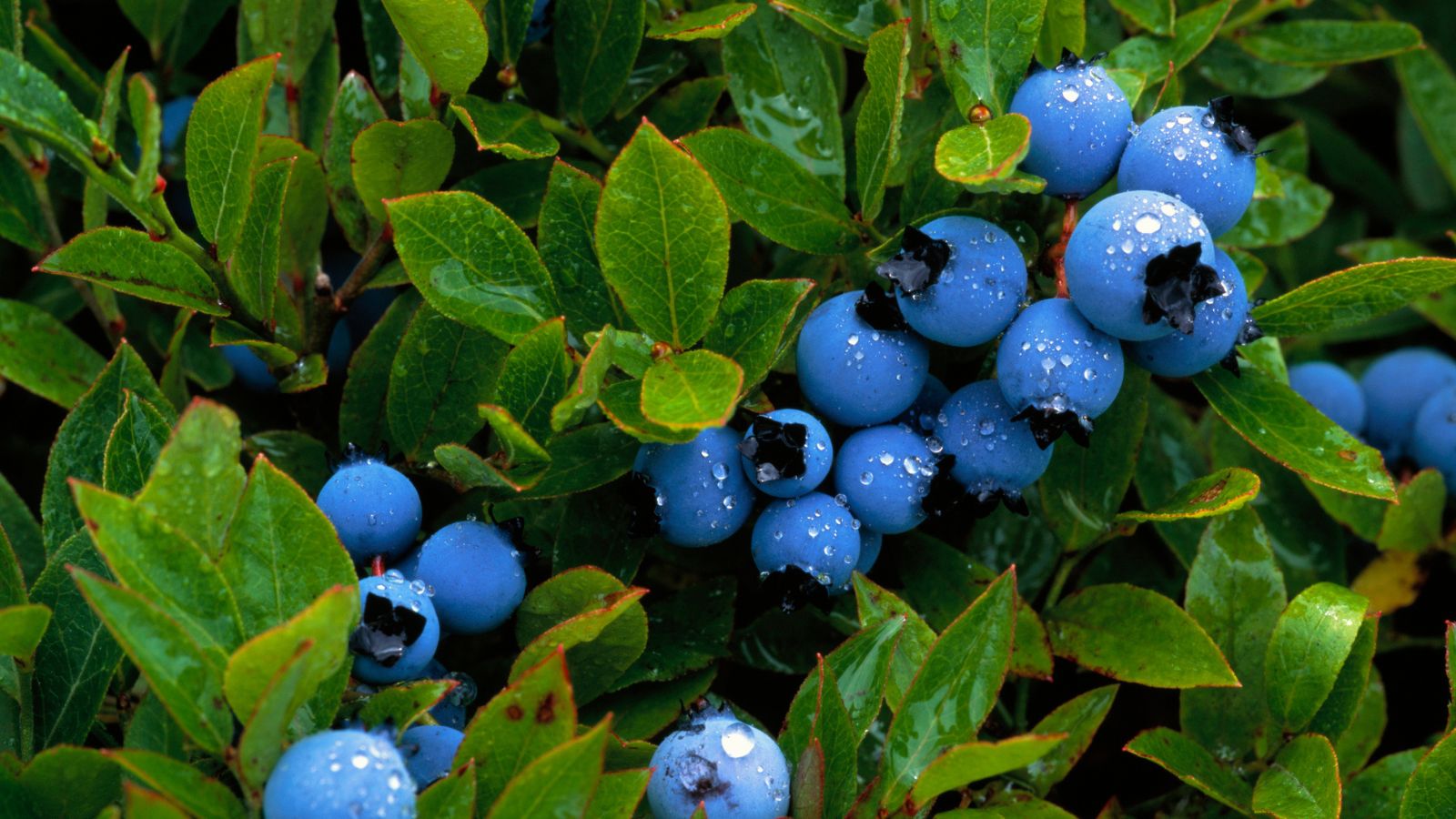When should I fertilize my blueberry plants? Expert tips for a bumper crop
Could you be getting juicier fruits?


If you know when to fertilize blueberries, you will be rewarded with the best yield and the tastiest of fruits because well-timed feeding enables blueberry plants to have all the nutrients they need for growth and development.
Without doubt one of the best plants to add to your kitchen garden, once you have learned about growing blueberries, you will be hooked: blueberry plants are simple to plant and nurture, and attractive, growing pretty white flowers in spring, berries in summer and beautiful green leaves in fall.
Here, gardening experts share their insights on when to fertilize blueberry plants for best results in spring, summer and fall.
When to fertilize blueberries
In order to achieve thriving blueberries and bountiful harvests, it is crucial to fertilize them at the right time.
Beverly Roberts, gardening expert at MicroVeggy, says that the best time to fertilize blueberries is early spring, before new growth emerges.
'This timing ensures that the plants receive the necessary nutrients for a strong start. A good tip is to fertilize your plant just before the buds begin to swell. If you add fertilizer at this time it will promote robust root development which is crucial for the overall health of your plant.'
That done, apply fertilizer again around six weeks later, in early to mid summer, and then again after you have harvested the blueberries – harvesting period is gradual and can start in late May and finish in mid-August so expect to do this in fall.
'By doing this you provide a consistent supply of nutrients for your plant throughout the growing season. This method ensures that the plant has what it needs at each stage of growth,' says Robin Phelps, Gardening and Preserving Coach for Sow Many Plants.
If you are growing blueberries in pots, it is a good idea to feed them every three or four weeks with ericaceous plant feed.

Beverly Roberts is a passionate gardening enthusiast who has dedicated her life to cultivating and nurturing nature’s gifts. As a spirited blogger, Beverly shares her vast understanding and experiences with the MicroVeggy community, motivating fellow green thumbs and nurturing a thriving online community.

Robin Phelps is a Gardening and Preserving Coach at Sow Many Plants, with over 20 years of experience in the gardening industry. She specializes in growing fruit and vegetables, with a dedication to teach others how to preserve and keep what they grow.
Which fertilizer for blueberries?
Tim Graham, Chief Horticulturist at Yard and Garden Guru, says that it is important to choose the correct fertilizer when fertilizing your blueberry plants.
‘Blueberries prefer an acidic soil pH, between 4.5 and 5.5. Therefore, it’s important to use a fertilizer for acid-loving plants’; you can also use an amendment alongside this like sulfur to maintain the correct pH levels.
You can test the pH of the soil if you aren't sure of the composition of yours with a soil pH tester kit, such as this one from Amazon. Down to Earth All Natural Acid Mix Fertilizer at Amazon is a great option for blueberries.

Tim is a passionate horticulturist and landscape designer with over 20 years of experience in the industry. As the founder and chief horticulturist at Yard And Garden Guru, he aims to empower gardeners of all skill levels with expert advice, innovative ideas, and eco-friendly practices.
FAQs
When should I start feeding blueberries?
Established plants will benefit from an ericaceous mulch and feed high in nitrogen in winter, then again in early spring, just before new growth emerges, and when the buds begin to swell. Apply fertilizer again in early to mid summer (around six weeks later), then again, after you have harvested the blueberries, in fall.
Can you use coffee grounds to help fertilize blueberries?
Yes, coffee grounds can be used alongside your fertilizer to help boost your blueberry plant. As coffee is highly acidic they work well alongside them as blueberries are acid-loving plants.
Blueberries are very rewarding fruits to grow that have high yields in the summer months when fertilized correctly. Fertilizing is also a good way to get a blueberry bush to fruit if you're struggling. These berries are definitely one to put on your home growing list as they can be grown in raised beds but if you are short on space these plants grow well in containers too.
Sign up to the Homes & Gardens newsletter
Design expertise in your inbox – from inspiring decorating ideas and beautiful celebrity homes to practical gardening advice and shopping round-ups.

Seraphina is a contributing editor at Homes & Gardens, writing Solved features on organizing and storage. She loves to decorate and also grow her own produce from her home in London. Her previous experience includes working at Women's Health and Fabulous Magazine.
-
 Bryce Dallas Howard's bedroom is the most creative, social space in her entire home – she uses 'conversational seating' to create a multifunctional 'salon'
Bryce Dallas Howard's bedroom is the most creative, social space in her entire home – she uses 'conversational seating' to create a multifunctional 'salon'The actress's bedroom doubles as a home office thanks to its clever layout and furnishings, proving that this area is much more than a sleep space
By Hannah Ziegler
-
 7 questions to ask yourself before moving house – realtors promise answering these questions will prevent buyer's regret
7 questions to ask yourself before moving house – realtors promise answering these questions will prevent buyer's regretDon’t make your move harder, ask these questions before moving to avoid mistakes
By Chiana Dickson